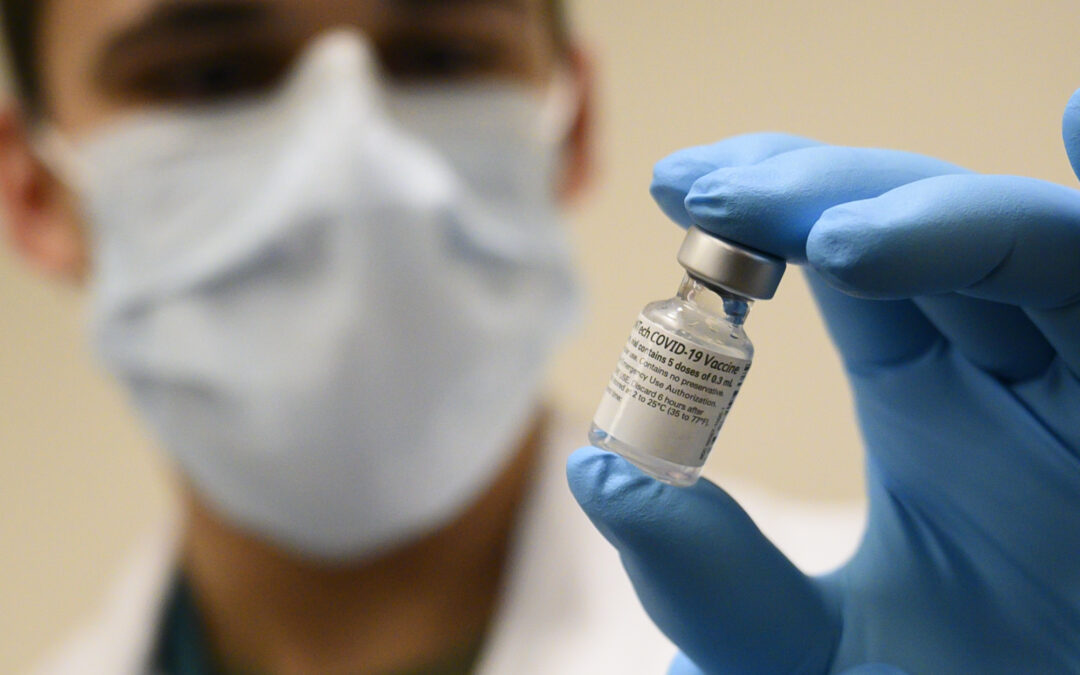Poland has so far performed the third most vaccinations against coronavirus among European Union countries, the Polish government has announced.
“At this point we are in third place in Europe,” behind only Germany and Italy, said Michał Dworczyk, the government official overseeing the vaccine rollout. “Of course we are pleased about this, but, God forbid, it is not a reason for triumphalism.”
Poland has so far administered 177,863 vaccines, said Dworczyk, speaking on Thursday afternoon. Data gathered by researchers at the University of Oxford confirms that Poland has vaccinated the third highest number of people in the EU.
👏 to @MZ_GOV_PL for a tremendous job with #Poland's nationwide #COVID19 vaccine rollout!
Among EU countries, 🇵🇱 is third in terms of number of administered vaccinations.#SzczepimySię 💉 https://t.co/IusCv0ZRF4
— Embassy of Poland U.S. (@PolishEmbassyUS) January 8, 2021
In relation to population, Poland has the sixth highest vaccination rate in the EU, according to the same data. As well as Italy and Germany, it is also behind Denmark, Cyprus and Estonia. (The data for some countries, however, is a few days out of date.)
The EU and its national governments have faced some criticism for the relatively slow pace of their rollout of the vaccinations, the purchase and distribution of which has been coordinated jointly by all member states. Outside the bloc, countries such as the UK, US and Israel have been faster in administering vaccines.
The UK, with a population of 67 million, has vaccinated more people than all 27 EU countries, with their population of 448 million, combined, having begun more than two weeks earlier than them on 8 December.
The delays in #coronavirus #vaccine rollout are mostly linked w/ manufacturing bottlenecks & countries being unprepared to roll out the jabs quickly, argues POLITICO.
The EU signed deals for all by early August, but countries approved months later.#covid https://t.co/0T5JM3RW5C— Vanessa Campo-Ruiz, MD PhD (@VCSTX) January 6, 2021
While there have been reports of holdups at the national level in some member states, Poland’s government says that it has the capacity to administer many more vaccines than it is so far able to receive via the EU.
“Unfortunately the deliveries contracted by the EU are very small in relation to the capacity we have created,” Dworczyk told Polskie Radio yesterday. “The system we have been building allows us to administer up to 4 million doses a month, but the deliveries we can count on for now are about 360,000 doses a week.”
Speaking today, however, Dworczyk shifted tone a little, saying that it was “due to the producers [that] these deliveries are smaller than we would like”.
He added that Poland is due to have received almost 6 million doses by the end of March – most (4.6 million) from Pfizer-BioNTech, but also from Moderna (0.8 million) and CureVac (0.4 million). That would be enough for almost 3 million people (with two doses required per person).
Poland’s policy is currently to put half of all vaccines received into storage. This ensures “that each patient who receives the first dose has a 100% guarantee that they will be able to get a second”, said Dworczyk today.
The government has reacted angrily this week to news that a clinic in Warsaw gave vaccines to celebrities before they were entitled to receive them. The ruling Law and Justice (PiS) also expelled a local politician who was vaccinated before being eligible.
This morning, Rzeczpospolita, a leading newspaper, reported that at least five other hospitals have been found to have illegitimately given vaccines to people outside the group currently entitled to them (which is made up mostly of medical staff).
Dworczyk, however, today praised the vast majority of hospitals, saying that “99% are conducting this whole process very professionally”.
According to government calculations, the current group being vaccinated comprises around 1 million people. The second – which includes those aged over 60, members of the uniformed services, and teachers – is around 10 million strong and will begin to receive vaccines later this month.
Dworczyk also announced today that, out of the almost 178,000 people vaccinated in Poland so far, only eight have suffered adverse reactions, and those have all been mild.
With polls indicating that the Polish public are relatively sceptical about the vaccine, the government has been keen to promote it as safe. It has also set up a special fund to provide compensation to anyone who suffers negative side effects.
Main image credit: Secdec/Lisa Ferdinando/Flickr (under CC BY 2.0)

Daniel Tilles is editor-in-chief of Notes from Poland. He has written on Polish affairs for a wide range of publications, including Foreign Policy, POLITICO Europe, EUobserver and Dziennik Gazeta Prawna.




















